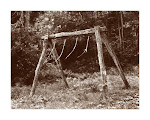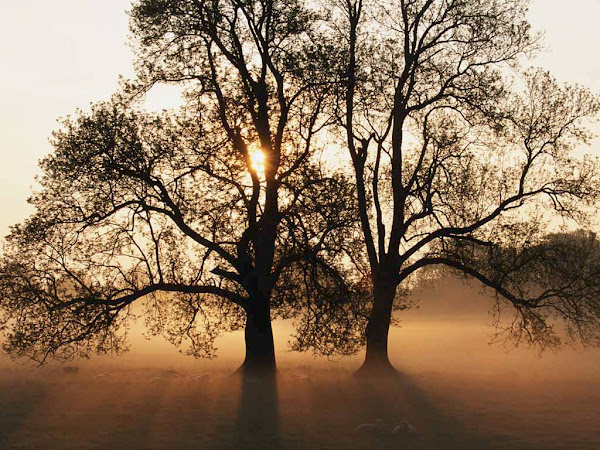Stephen Levine reminds us that when we move from seeing our particular suffering as “our “ pain and begin to experience it simply as “the “ pain- the pain of all creation, of all beings- then we move from being separate and alone and our suffering becomes a doorway into community with the family of earth. The pain we have felt is intimately connected with the pain felt by the women giving birth; by the families torn apart by civil war; by the children dying of cancer, and by the fathers and mothers who hold them as they die; and by all those who suffer hunger, war, or oppression. Every one of us is given some quantity of suffering; some are given more than others, some more violently, some more subtly. But the suffering we feel has never been ours alone; it is simply a fragment of the suffering given us all as children of flesh and spirit. The form of the suffering may change from person to person, but the fact of our suffering is something we inevitably hold in common with all sentient beings.
Wayne Muller Legacy of the Heart
We are all shining cells in the body of Christ. We are valuable members of God’s family. Each time we gather and share our deepest sorrows we begin to see just how intrinsically tied to one another we are. Our naming of life is always a challenge. In Christian circles it appears that much of our time is given over to theological naming. As believers who are attempting to navigate life through the narrative of Scripture, this conversation makes sense to me. However, beneath much of the push and pull of navigating the meaning of the text what we are really asking is “Why do I suffer? Why does God seem so distant? Why does life treat me this way?
Is it possible that this seeming ebb and flow of God’s presence in our lives is tied to the naming of things at deeper and deeper levels? Faith for many has been relegated to some once in lifetime encounter (i.e. salvation) rather than a journey. This journey cannot be traversed alone. It is by its very nature a shared pilgrimage. The sharing of this pilgrimage is this constant stopping by the side of the road and wrapping and unwrapping each others wounded bandages. We are as Henri Nouwen said “wounded healers.”
Why are we surprised to discover in each other unresolved places where to date God’s renaming love has not yet been acknowledged? I find that I am blind to my blindness. I am unconscious to what I am unconscious of. I do not know what I do not know. I will fight against what I am afraid of regardless of how powerless that entity may appear to others. This is my suffering. At some level I think I deserved it.
Some have regarded pain as a sign of their special status in the universe. Not special in the sense of brilliance and light, but special in terms of unworthiness and retribution. Their pain and suffering are indeed cosmic signposts as to the very worth of their existence. When this is my posture I must find the person responsible and then place the pain back on them or attempt to understand why they would have even done these things in the first place. This is not to denigrate therapy or looking to our past or the world’s past for that matter to determine how we might avoid pain and suffering in the future. Is this not what learning should ultimately be about? However, to spend the fullness of my time and presence on this earth in search of the perpetrator, the victimizer, makes me a foil in someone else’s life. I am playing a bit part in someone else’s story. How do I make this pain “our story?”
How do we join our stories? How do we bring our pain and suffering into a place where it becomes teachers and sages for others who suffer much like us? Jesus taught us that our pain is not our punishment. The disciples were so desperate to understand the nature of the blind man’s condition that they asked Jesus a question that by all cultural accounts made sense. For what purpose was this man made blind? Jesus response says so much about how the Father sees things. For Jesus this is an opportunity to bless and heal. It is about compassion, not shaming.
When my suffering becomes “our” suffering then my consciousness begins to shift and my vision of life slowly but profoundly begins to find its naming vision through other’s stories. I begin to see that my gifts were meant from the foundations of the earth to be given to my family. I just needed for someone to call them out. The phrase” call someone out” may have some baggage attached to it. It can sound a bit harsh and purposely harmful so as to expose another. In this case our calling out is about the wisdom, love, and beauty we so desperately need in our own lives thus we stand before each other in such beggar like postures. We are all saying like the character Tommy in The Who’s rock opera,
“Listening to You, See me. Tommy: See me, feel me, touch me, heal me.See me, feel me, touch me, heal me.See me, feel me, touch me, heal me.See me, feel me, touch me, heal me, heal me, heal me.Chorus: Listening to you I get the music.Gazing at you I get the heat.Following you I climb the mountain.I get excitement at your feet!Right behind you I see the millions.On you I see the glory.From you I get opinions.From you I get the story.Listening to you I get the music.Gazing at you I get the heat.Following you I climb the mountain.I get excitement at your feet!
Each time we gather together we are listening to each other’s stories. We are submitting ourselves to the narratives regarding our pilgrimage and our search for special status. Why do I get stuck in my own pain and suffering? Why do I rehearse over and over again the recrimination that seemingly brought me to this weakened helpless state? To date it is the only story I have known. I will continue to do this dance of suffering until I allow myself the time and place to grieve. I must allow myself to sink down into the place of pain and abuse. But…I cannot do this alone. This is why the suffering becomes our suffering. In fact, I believe that we Christians are to carry within us the awareness of the entire world’s suffering. As Paul said in Romans, the very earth groans and moans for liberation and rescue. All creation longs for respite in the Father’s arms. In the meantime God has given us His Holy Spirit. He beckons us to be the Bride. He beckons us to activate the one and only antidote to this strange virus called suffering. That is the forgiveness given to us in the very act of the suffering Savior. He has given us an example. He humbled Himself even to death so as to break the cycle of suffering and sin.
This day we can be set free in Him. Without His atoning gift our suffering and the sin done to us and the sin we do to others that causes them suffering has no meaning. In forgiveness this suffering is not made to disappear but now becomes compassion, grace, and love. This is the redeeming power of forgiveness. It changes almost like an alchemist the very foundational elements of a substance. What was once only pain and grief now becomes a place of refuge and restoration. In this place of forgiveness all of humanity can find redemption. Redemption does not forget the past but retells the story. In this final rendering we are seen and known as we were in the eyes of the Father from the very beginning. We are beautiful. We are the apple of the Father’s eye. As we say in New Adam, Your work is my work.” Let us add another few phrases….Your suffering is my suffering. Your forgiveness is my forgiveness.”
Let me end with a story from Wayne Muller’s book Legacy of the Heart which I recommend heartily.
In Vietnam there is a traditional folk tale that describes the difference between heaven and hell. In hell, everyone is given an abundance of food and then given chopsticks that are a yard long. Each person has all the food they need, but because the chopsticks are too long, the food never reaches their mouths.
In heaven, the image is exactly the same. Everyone is given an abundance of food, and their chopsticks are also a yard long. But….in heaven people use their chopsticks to feed one another.
Friday, August 8, 2008
Subscribe to:
Post Comments (Atom)




No comments:
Post a Comment